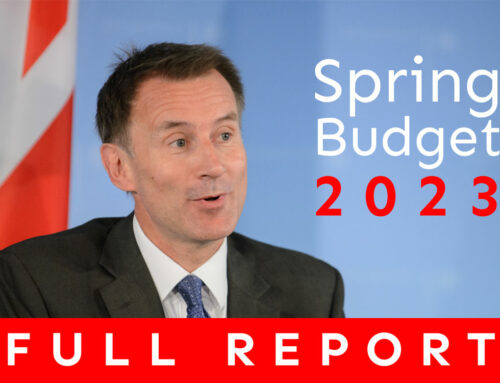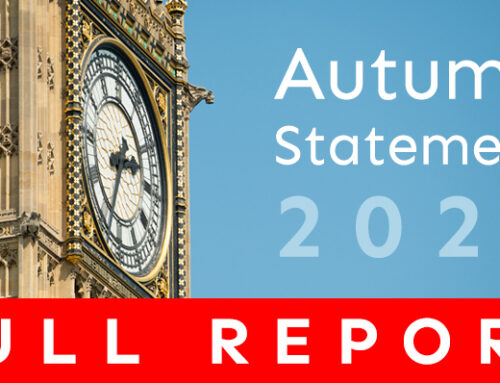Choosing the right business structure for your new business
Whether you’re opening a shop, running your own hairdressers, or maybe even a café, one thing you’ll need to decide on is your business structure. So what are the available options and how do they differ? Choosing the right structure from the get-go can mean taking advantage of the possible tax saving benefits available to you, and protecting yourself from some of the risks associated with starting a new venture.
In this blog we explore the different business structures and help you decide on which is the right one for you.
Option 1 – sole trader
Becoming a sole trader is one of the most attractive business structures, as it’s the simplest way to get started, and can be established right away without any legal formalities.
Whilst this can be a benefit for some, it does mean that there’s no distinction between what belongs to your company and you personally. Therefore all assets are exposed should anything happen, and can therefore be seized should anything go wrong. You’ll have total control but also 100% of the risk involved.
As a sole trader, you’ll be taxed as an individual at income tax rates. Your tax and National Insurance Contributions (NICs) are therefore calculated on top of the total profits you make in a tax year.
You’ll need to register with HMRC and complete a self-assessment tax return annually. One other positive from operating as a sole trader is that other than your self-assessment, you won’t have any other filing requirements, meaning you’ll need less professional assistance in the running of your business and less personal information available on public record.
One other positive from operating as a sole trader is that you’re able to employ one other person, so if you’re going into business with another person or a spouse, then a sole trader structure may work for you.
How can Vantage help?
Whilst sole traders don’t have the same legal requirements as other business structures, they do have a set of tax rules and regulations to adhere to. Here at Assure Accountants we help sole traders with the nitty gritty accountancy requirements, freeing them up to get on with running their business. Take a look at our sole trader services here.
Option 2 –partnership
A partnership is quite similar to a sole trader, but with more people involved. It is therefore advisable to draw up a written agreement and for all involved partners to understand the terms of the partnership.
Once again the business and personal affairs of each partner are not legally separate to the business, therefore any assets are not protected, should anything happen.
Each partner is taxed as an individual on their individual share of profits, at income tax rates and will also need to pay NICs. The partnership will also be required to complete a partnership tax return, but doesn’t pay tax in its own right.
Other than the individual tax returns and the partnership filing requirements, there’s nothing else to worry about. There may be, however, more formal accounts required when it comes to the partnership agreement.
Another option is to possibly use a Limited Liability Partnership (LLP), which is similar to a partnership and taxed in the same way. Whilst this is the case, LLP allows each individual partner to limit their personal risk by capping their liability at the maximum of their contribution into the LLP. This will unsurprisingly come with extra paperwork and admin, as an LLP is required to file accounts with Companies House.
How can Vantage help?
If you’ve got a few people who need to be involved in your business venture, than forming an LLP may be the option for you. Get in touch with our team of expert accountants to discuss your options, and see how we can help and support you.
Option 3 – Limited Company
A Limited Company’s business affairs and assets are kept separate to your personal ones, meaning should anything happen you’ll be kept safe. There are, however, greater obligations when running a Limited Company which you are legally obliged to complete. The company is run by directors and owned by shareholders, which you decide upon.
A Limited Company is taxed at corporation tax rates, and taxed at an individual level when you take money out of the business in the form of dividends and a salary. For some, this method of paying yourself is an extremely tax efficient structure, plus you’ll have access to other tax benefits which are only available to Limited Companies, and will ultimately aid you in maximising your overall take home pay. Extracting money from your Limited Company is more complex than the other structures, and having the support and guidance from as specialist accountant is strongly advised.
A Limited Company comes with additional filing requirements with Companies House for an annual statement, statutory accounts, plus a tax return with HMRC. As a director of your Limited Company you’ll most likely need to file an individual tax return.
How can Vantage help?
Our expert director-level accountants set up, look after and advise Limited Companies every day. They help small business owners just like you save money, by setting up your business finances to help make your business the most tax efficient as possible, whilst keeping you on the right side of the taxman. Take a look for more information on how we help and advise Limited Companies.
Get expert advice to help you decide which option is right for you
If you need help in making your mind up, or just want to know a little more about each option and how it could work for you and your business, get in touch. We offer small business accounting you can trust, and support that grows with you. Get in touch today to find out more.




